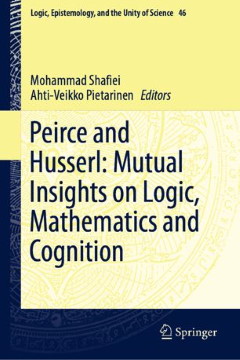Repository | Series | Book | Chapter
Symbolic knowledge in Husserlian pure logic
pp. 77-96
Abstract
As a multi-layered theory of the foundations of ""mathematicizing" logic", Husserlian pure logic is stratified on three levels (sub-theoretical, theoretical, meta-theoretical), which are then themselves transversally split in two sides (apophantic and ontological). This paper investigates how symbolic knowledge works in this framework—viz. in terms of "How can the subjective operating with symbols be justified in the process of obtaining objective contents of knowledge?" To do so, it innovates in showing how Husserl's theory of semiotic intentionality provides the epistemological-transcendental foundation for the syntactic-semantic correspondence of the meaning relationship that is operative at the kernel of pure logic—i.e. on the theoretical level, between systems of axioms and formal manifolds. And thereby, it bridges the gap between the two volumes of the first edition of the Logical Investigations (namely, the Prolegomena and the six Investigations).
Publication details
Published in:
Shafiei Mohammad, Pietarinen Ahti-Veikko J. (2019) Peirce and Husserl: mutual insights on logic, mathematics and cognition. Dordrecht, Springer.
Pages: 77-96
DOI: 10.1007/978-3-030-25800-9_5
Full citation:
Isaac Manuel Gustavo (2019) „Symbolic knowledge in Husserlian pure logic“, In: M. Shafiei & A. J. Pietarinen (eds.), Peirce and Husserl, Dordrecht, Springer, 77–96.



